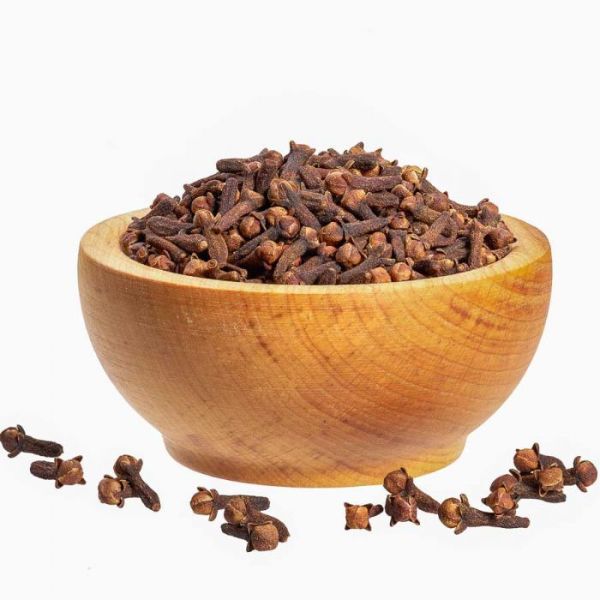Syzygium aromaticum, commonly known as cloves, is a spice derived from the dried flower buds of the clove tree. Cloves are native to India and Srilanka but are now cultivated in several tropical regions around the world. They are widely used for their aromatic flavor and medicinal properties.
Cloves are used as a spice in various cuisines. They have a strong, warm, and aromatic flavor that adds depth to both sweet and savory dishes. Cloves are often used in baking, spice blends, marinades, soups, and stews. They pair well with other spices like cinnamon, nutmeg, and ginger.
Cloves have been traditionally used for their oral health benefits. They contain eugenol, a compound known for its antiseptic and analgesic properties. Clove oil or clove-infused products are used in oral care, including toothpaste, mouthwash, and throat lozenges. Cloves are believed to help relieve toothache, freshen breath, and reduce oral bacteria.
Cloves have carminative properties that can help promote healthy digestion. They are often used to alleviate digestive issues like bloating, gas, and indigestion. Clove tea or infusion may be consumed for digestive relief.
Cloves contain compounds with anti-inflammatory and analgesic properties. Clove oil or poultices made from cloves are sometimes applied topically to relieve minor pain, reduce inflammation, and soothe skin conditions such as insect bites or stings.
Cloves have antimicrobial properties and are believed to possess antibacterial and antifungal effects. Clove oil has been used traditionally to treat fungal infections, such as athlete's foot and nail fungus. It is also used in some natural remedies for microbial-related digestive issues.
Cloves have a history of use in traditional medicine systems. They have been used for their potential benefits on respiratory health, immune function, and as a warming herb.
